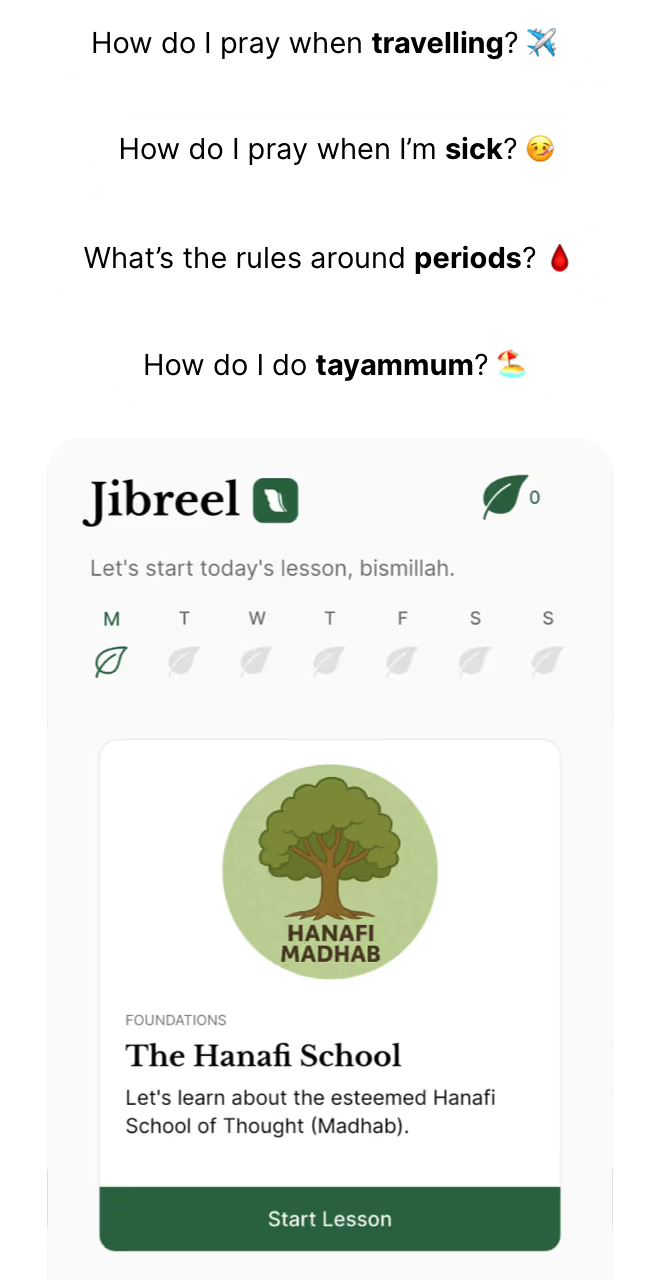is ghusl required after getting wet
No, ghusl is not required after merely getting wet. Ghusl, the ritual purification bath, is obligatory only under specific conditions such as the emission of sperm or sexual fluid, sexual intercourse, or the end of menstruation or postnatal bleeding. Simply getting wet does not necessitate a ghusl.
Understanding When Ghusl is Required
Obligatory Conditions for Ghusl
Ghusl becomes obligatory in the following situations:
- Emission of sperm or sexual fluid (mani), which includes situations like intercourse, wet dreams, or arousal with orgasm.
- Sexual intercourse defined as the disappearance of the head of the penis into the vagina or anus, irrespective of ejaculation.
- The conclusion of a woman's menstrual cycle or postnatal bleeding.
- For a new Muslim who was in a state of major ritual impurity before accepting Islam.
Non-Obligatory Scenarios
There are several situations where ghusl is not required, despite the individual becoming wet:
- The release of pre-sexual fluid (madhy) or thick white fluid (wady) does not necessitate ghusl; only wudu is required.
- Waking up from a wet dream but finding no physical wetness or identifying the discharge as madhy or wady.
- Simple acts such as swimming or getting caught in the rain do not require ghusl.
Additional Considerations for Ghusl
Sunnah and Recommended Ghusl Practices
Ghusl is considered sunnah before certain acts, even when not obligatory:
- Before the Friday and Eid prayers.
- Entering the state of pilgrim sanctity (ihram) during pilgrimage.
- On the Day of Arafah for those on the Hajj pilgrimage.
Integrals of Performing Ghusl
For a ghusl to be valid, it must include these three actions:
- Rinsing the entire mouth once.
- Rinsing the soft part of the nose once.
- Washing the entire body from head to toe.
Women with braided hair do not need to undo their braids, provided water reaches the roots.
Conclusion
In conclusion, simply getting wet does not necessitate ghusl. It is only required under specific conditions that cause major ritual impurity. Understanding when and how to perform ghusl ensures that one maintains the necessary state of purity required for certain acts of worship.
FAQs
Is ghusl required after a wet dream?
Ghusl is required after a wet dream only if there is a discharge of sperm or sexual fluid. If no wetness is found, ghusl is not needed.
Can I perform ghusl without undoing my braids?
Yes, women can perform ghusl without undoing their braids as long as the water reaches the roots of their hair.
Does ghusl become obligatory if no sexual fluid is emitted during intercourse?
Yes, ghusl is obligatory after intercourse regardless of whether sexual fluid is emitted.
Is it necessary to wash inside the ear canal during ghusl?
No, washing inside the ear canal is not required and can be harmful; cleaning the outer ear is sufficient.
Is ghusl necessary after touching the Qur’an with a barrier?
Ghusl is not required just for touching the Qur’an with a barrier; however, direct contact with the Qur’an requires a state of purity, which can be achieved with wudu when not in major impurity.













.avif)
